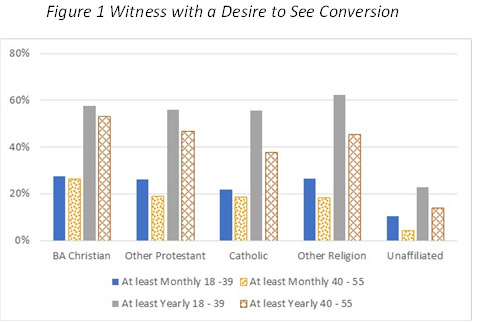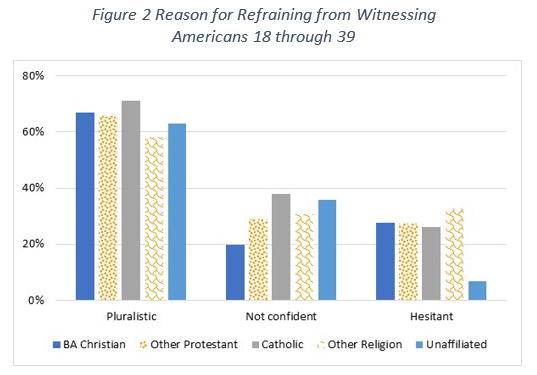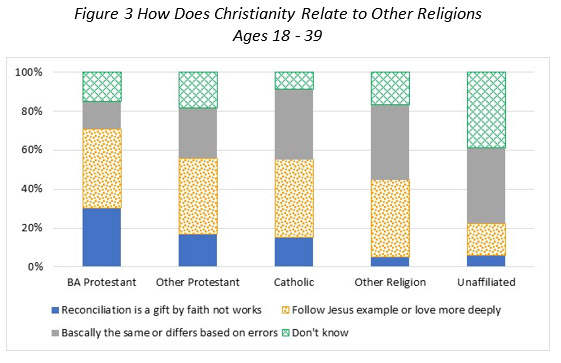Sue Bohlin provides helpful information for use in helping sharpen the question-asking skills of fellow believers as well as in evangelism. These “understanding questions” help Christians sharpen their biblical worldview and help unbelievers delve into the inconsistencies of their own worldview.
 Dr. Jeff Myers of Bryan College and Summit Ministries shares our passion for helping others develop a biblical worldview. One of the tools he offers in developing critical thinking skills is how to use the right question at the right time.
Dr. Jeff Myers of Bryan College and Summit Ministries shares our passion for helping others develop a biblical worldview. One of the tools he offers in developing critical thinking skills is how to use the right question at the right time.
He suggests four “killer questions” to help anyone think critically.{1} The first question is, What do you mean by that? In other words, define your terms. The second question is, Where do you get your information? The third is, How do you know that’s true?, and the fourth killer question is, What if you’re wrong?
Dr. Myers tells this story:
“A friend took a group of third graders to the Denver Museum of Natural History.
“Before he took them inside, he knelt down on their level and said, ‘Kids, if anybody in this museum tells you anything, I want you to ask them, how do you know that’s true?‘ Giving this question to a third grader is the intellectual equivalent of giving them a surface-to-air missile. These kids walked into the museum; all they knew was, Ask: How do you know that’s true?
“A paleontologist was going to show them how to find a fossil. Apparently they had intentionally buried a fossil down in the soil sample and she said, ‘We’re going to find it.’ Very clever, right? No, not with this crowd. ‘Cause they started asking questions like, ‘Well, how do you know there’s a fossil down in there?’ ‘Well, because we just know there’s a fossil down there.’ ‘Why do you want to find it?’ ‘Well, because we want to study it.’ ‘Why do you want to study it?’ ‘We want to find out how old it is.’ Well, how old do you think it is?’ ‘About 60 million years old.’
“‘Lady, how do you know that is true?’”
“She patronized them. She said, ‘Well, you see, I’m a scientist, I study these things, I just know that.’ They said, ‘Well, how do you know that’s true?’ Anytime she said anything at all they just asked, ‘How do you know that’s true?’ What happened next proves that truth is stranger than fiction. She threw down her tools, glared at these children, and said, ‘Look, children, I don’t know, OK? I just work here!’”{2}
Question #1: What do you mean by that?
The first question is, What do you mean by that? You want to get the other person to define his terms and explain what he is saying. If you don’t make sure you understand what the other person means, you could end up having a conversation using the same words but meaning very different things.
When I was a new believer, I was approached on the street by some people collecting money for a ministry to young people. I asked, naively, “Do you teach about Jesus?” They said, rather tentatively, “Yesss. . . .” I gave them some money and asked for their literature (which was in the reverse order of what I should have done). Only later did I learn that they did indeed teach about Jesus—that He was the brother of Satan! I wish I had had this first killer question back then. I would have asked, “What do you teach about Jesus? Who is He to you?”
Get the other person’s definition. Let’s say you’re talking to a neighbor who says, “I don’t believe there is a God.” Don’t quarrel with him: “Oh yes there is!” “No, there’s not.” Second Timothy 2:24-25 says not to quarrel with anyone. Just start asking questions instead. “What do you mean by ‘God’? What’s your understanding of this God who isn’t there?” Let him define that which does not exist! You may well find out that the god he rejects is a mean, cold, abusive god who looks a lot like his father. In that case, you can assure him that you don’t believe in that god either. The true God is altogether different. If it were me, at this point I wouldn’t pursue the existence of God argument, but rather try to understand where the other person is coming from, showing the compassion and grace of God to someone bearing painful scars on his soul.
Let’s say someone says she is for a woman’s right to choose abortion. You can ask, “What do you mean by ‘woman’? Only adult women? What if the baby is a girl, what about her right to choose? What do you mean by ‘right’? Where does that right come from?” Do you see how asking What do you mean by that? can expose problems in the other person’s perspective?
Question #2: Where do you get your information?
The question Where do you get your information? is particularly important in today’s culture, where we drown in information from a huge array of sources. Information is being pumped at us from TV, radio, music, Websites, email, blogs, billboards, movies, and conversations with people who have no truth filters in place at all. Consider the kind of responses you could get to the question, Where do you get your information?
“I heard it somewhere.” Well, how’s that for reliable? Follow with another killer question, How do you know it’s true?
“Everybody says so.” That may be so, but is it true? If you say something loud enough, often enough, and long enough, people will believe it’s true even if it isn’t. For example, “everybody says” people are born gay. Doesn’t everybody know that by now? That’s what we hear, every day, but where is the science to back up that assertion? Turns out, there is none. Not a shred of proof that there is a gay gene.
Someone else may say, “I read it somewhere.” So ask, in a legitimate newspaper or magazine? Or in a tabloid? Elvis is not alive, and you can’t lose twenty-five pounds in a week. You might have read it somewhere, but there is a word for that kind of writing: fiction.
Did you see it on the internet? That could be a single individual with great graphics abilities pumping out his own totally made-up stuff. Or it could be a trustworthy, legitimate website like Probe.org.
Did you see it on TV? Who said it, and how trustworthy is the source? Was it fact, or opinion? Be aware of the worldview agenda behind the major media outlets. Former CBS reporter Bernard Goldberg exposed the leftist leanings of the media in his book Bias: A CBS Insider Exposes How the Media Distort the News. Most of what you see on TV is what the Bible calls “the world,” and we are to be discerning and skeptical of the values and information it pumps out.
Don’t be fooled by someone sounding confident and self-assured. Many people feel confident without any basis for feeling that way. Ask, Where do you get your information? It’s a great killer question.
Question #3: How do you know that’s true?
The third killer question is, How do you know that’s true? This is probably the most powerful question of them all. It puts the burden of proof on the other person.
Most people aren’t aware of what they assume is true; there’s simply no other way to see the world. They often believe what they believe without asking if it’s true, if it aligns with reality. If you respectfully ask killer questions like How do you know that’s true?, all of a sudden it can begin to occur to folks that what they believe, they believe by faith. But where is their faith placed?
Sometimes, the kindest thing we can do for people is gently shake up their presuppositions and invite them to think.
The reigning philosophy in science today is materialism, the insistence that the physical universe is all that exists. Something is only real if it can be measured and quantified. We need to ask, How do you know there is nothing outside the matter-space-time-energy continuum? How do you know that the instruments of physical measurement are the only ones that matter? How do you know there isn’t something non-physical, which cannot be measured with physical measuring tools? If all you have is a ruler, how do you measure weight? (And if all you have is a ruler, and someone wants to talk about weight, it would be easy to deny there is such a thing as weight, only height and length, a lot like the materialists’ insistence that since we can’t measure the supernatural, it doesn’t exist.)
At the heart of the debate over stem cell research is the question of the personhood of a human embryo. Those who insist that it’s not life until implantation need to be asked, How do you know that’s true? It’s genetically identical to the embryo ten minutes before implantation. How do you know those are only a clump of cells and not a human being?
Postmodern thought says that no one can know truth. This philosophy has permeated just about every college campus. To the professor who asserts, “No one can know truth,” a student should ask, How do you know that’s true? If that sounds slightly crazy to you, good! A teacher who says there is no truth, or that if there is, no one can know it, says it because he or she believes it to be true, or they wouldn’t be saying it!
We get hostile email at Probe informing us of how stupid and biased we are for believing the Bible, since it has been mistranslated and changed over the centuries and it was written by man anyway. When I ask, “How do you know this is true?”, I don’t get answers back. Putting the burden of proof on the other person is quite legitimate. People are often just repeating what they have heard from others. But we have to be ready to offer a defense for the hope that is in us as well.{3} Of course, when we point to the Bible as our source of information, it’s appropriate to ask the killer question, “How do you know that’s true?” Fortunately, there is a huge amount of evidence that today’s Bible is virtually the same as the original manuscripts. And there is strong evidence for its supernatural origins because of things like fulfilled prophecy. Go to the “Reasons to Believe” section of Probe.org for a number of articles on why we can trust that the Bible is really God’s word.
There are a lot of mistaken, deceived people who believe in reincarnation and insist they remember their past lives. Shirley MacLaine claims to have been a Japanese Geisha, a suicide in Atlantis, an orphan raised by elephants, and the seducer of Charlemagne.{4} Here’s where this killer question comes in. If you lose your life memories when you die, how do you know your past lives are real? When you’re born into a new body and your slate is wiped clean, how do you know it’s you?
So many people have embraced a pragmatic, expedient standard of, “Hey, it works for me.” “It works for me to cheat on my taxes, as long as I don’t get caught.” “It works for me to spend hours on porn sites late at night since my wife doesn’t know how to check the computer’s history.” “It works for me to keep God in his corner of the universe while I do my own thing; I’ll get religious later in life.” Well, how do you know it works? You haven’t seen the whole, big picture. You can’t know the future, and you can’t know how tomorrow’s consequences will be reaped from today’s choices.
Let me add a caveat here. The underlying question behind How do you know that’s true? is really, “Why should I believe you?” It can be quite disconcerting to be challenged this way, so be sure to ask with a friendly face and without an edge in your voice.
Question #4: What if you’re wrong?
One benefit of this question is that it helps us not to “sweat the small stuff.” There are a lot of issues where it just doesn’t matter a whole lot if we’re wrong. If you’re agonizing over a restaurant menu, trying to figure out the best entree, what if you’re wrong? It doesn’t matter. You can probably come back another time. If you can’t, because you’re traveling and you’ll never have another chance, is it going to wreck your life? Absolutely not.
Many of our youth (and, sadly, adults as well) believe that having sex is just part of being social. Many of them believe that sex qualifies as recreation, much like going to an amusement park. They need to be challenged: What if you’re wrong? Besides the high probability of contracting a number of sexually transmitted diseases, there is the ongoing heartache of the discovery that “casual” sex isn’t, because of its lasting impact on the heart.
The ultimate question where this matters is, What do you believe about God? What do you do with Jesus’ statement “I am the way, the truth, and the life; no one comes to the Father except by Me”?{5} What if you believe there is no God, or that you can live however you want and God will let you into heaven because you’re not a mass murderer? We need to ask, What if you’re wrong? You will be separated from God forever!
It’s only fair for Christ-followers to ask that of ourselves. What if we’re wrong? What if we’re actually living an illusion that there is a God and a purpose to life? I would say, “You know what? I still lived a great life, full of peace and purpose and fulfillment. Ultimately, if there were no God, it wouldn’t matter—nothing would matter at all!—but I still loved my life. Either way, if I’m right or I’m wrong, I win.”
These four killer questions are powerful to spark meaningful conversation and encourage yourself, and others, to think critically. Use them wisely, be prepared for some interesting conversations . . . and have fun!
Notes
1. Our fellow worldview apologist Bill Jack of Worldview Academy (www.worldview.org) has also popularized these “killer questions,” but they go back all the way to Socrates.
2. “Created Male and Female: Biblical Light for a Sexually Darkened World” conference sponsored by the International Council for Gender Studies, October 10-12, 2003.
3. 1 Peter 3:15.
4. www.fortunecity.com/emachines/e11/86/duncan2.html
5. John 14:6.
© 2007 Probe Ministries
 Looking at the detailed results, all religions except the Unaffiliated showed very similar results: over 20% (1 in 5) of those witnessed at least monthly and about half witnessed at least yearly. So, it would appear that there is a lot of witnessing going on with very few conversions.
Looking at the detailed results, all religions except the Unaffiliated showed very similar results: over 20% (1 in 5) of those witnessed at least monthly and about half witnessed at least yearly. So, it would appear that there is a lot of witnessing going on with very few conversions. We also asked the question: “When I refrain from communicating my religious belief with someone, it’s usually because:”
We also asked the question: “When I refrain from communicating my religious belief with someone, it’s usually because:” The results are charted in the graph to the right. First, notice the interesting result that only about 30% of Born Again Protestants selected ‘reconciliation is a gift’ while 40% selected following Jesus’ example or love others more deeply. As noted above, this second answer is not inconsistent with the concepts of Christianity but is not as fundamental as the first. However, selecting this answer over reconciliation is a gift’ is consistent with what we saw earlier: 70% of Born Again Christians are not exclusivists.
The results are charted in the graph to the right. First, notice the interesting result that only about 30% of Born Again Protestants selected ‘reconciliation is a gift’ while 40% selected following Jesus’ example or love others more deeply. As noted above, this second answer is not inconsistent with the concepts of Christianity but is not as fundamental as the first. However, selecting this answer over reconciliation is a gift’ is consistent with what we saw earlier: 70% of Born Again Christians are not exclusivists.